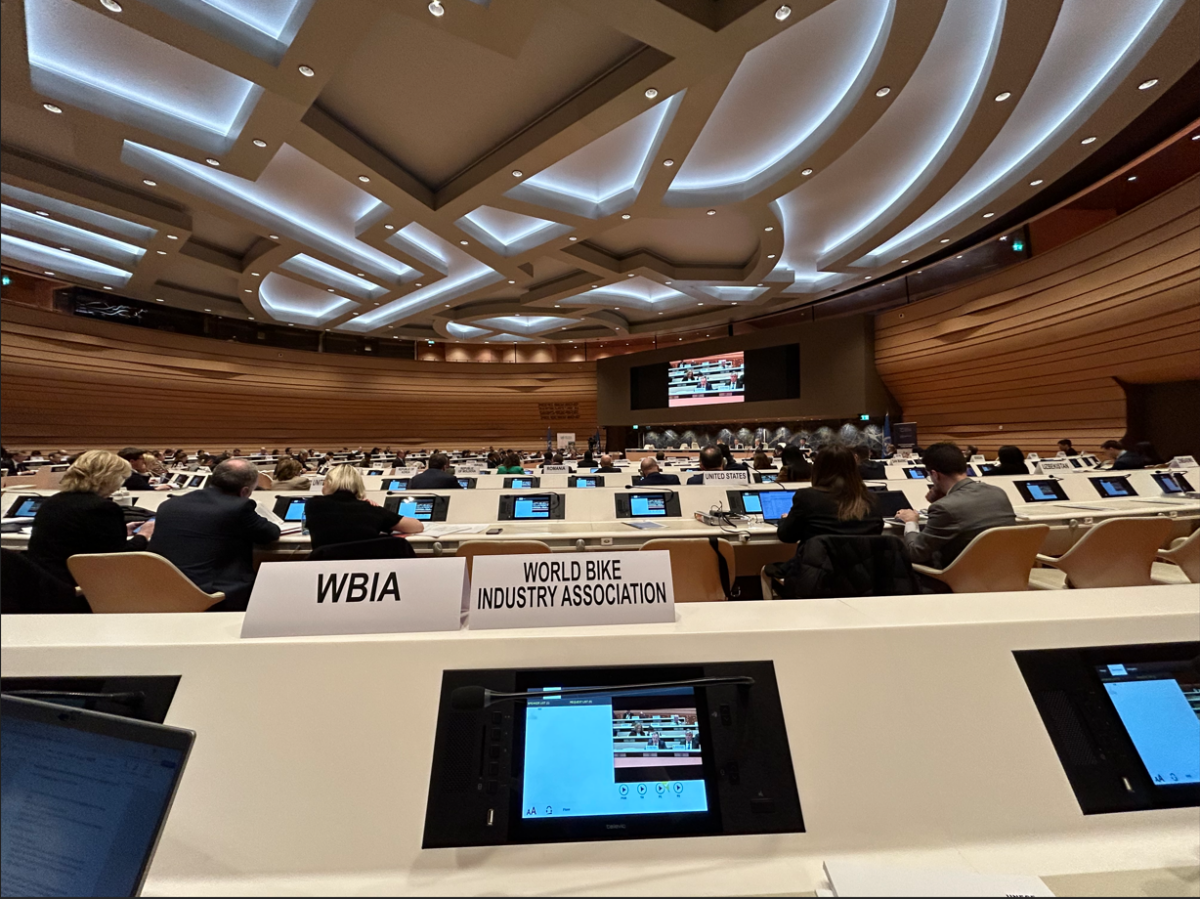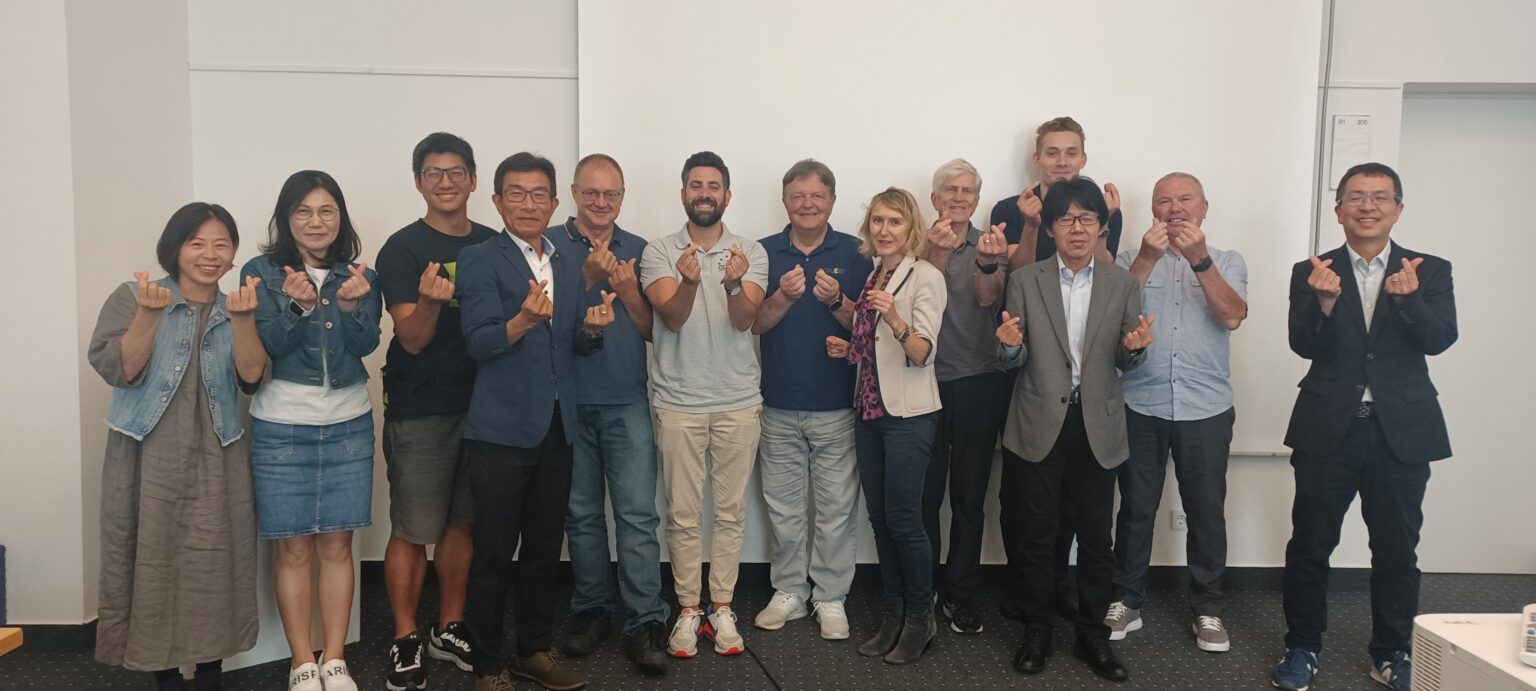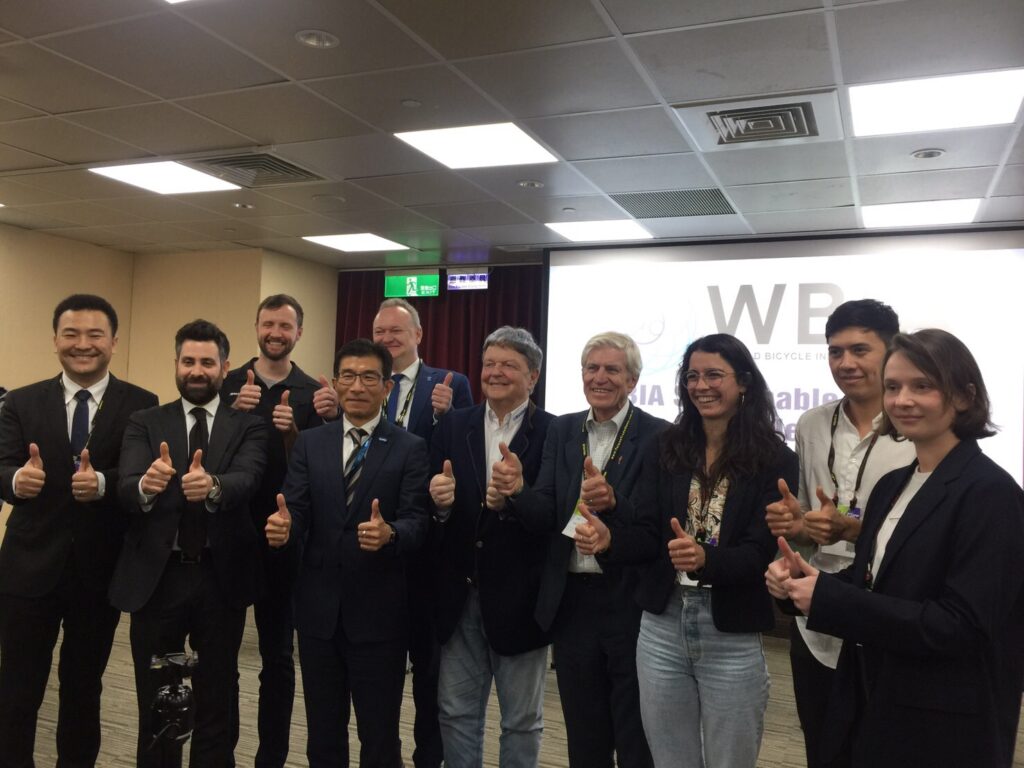Taipei, 26 March 2025 – Recognized as a leading global trade fair in the Cycling Industry, the 2025 edition of Taipei Cycle Show took place on 26 to 29 March. The show centred on four themes: Innovation Drive, Green Forward, Cycling Ecosystem, and Smart Cycling. In alignment with these themes, the World Bicycle Industry Association (WBIA) hosted a special event on 26 March, co-organized with TBA (Taiwan Bicycle Association), TAITRA, BAS (Bicycling Alliance for Sustainability) and the Cycling & Health Tech Industry R&D Centre. The event, titled “Pedalling Towards Net-Zero: Cycling Advocacy and the Industry’s Role for a Sustainable Future”, spotlighted sustainability and the industry’s path toward net-zero emissions. Robert Wu (Taiwan Bicycle Association and KMC Chairman, WBIA Board Member) and Bayram Akgül (WBIA and BISED President, Salcano and CONEBI Board Member) opened the event.
More specifically, the event featured two panel discussions, bringing together representatives from companies, WBIA member associations and international advocates. The first discussion – “Sustainable Supply Chains and Cycling Advocacy: Driving Decarbonization Together”, explored how sustainable supply chains align with global climate goals, including the WBIA Sustainable Supply Chains (SSC) Project. The panel also highlighted strategies for creating circular economy models and for integrating sustainability while strengthening industrial policy advocacy. Moderated by Manuel Marsilio (CONEBI General Manager), the discussion featured various speakers: Charlie Liu (Giant ESG Manager, Bicycling Alliance for Sustainability), Massimo Panzeri (CONEBI President, Atala CEO), Jeff Chen (BAS Vice Chairman and Novatec General Manager), Anke Scheffner (ZIV Chief Policy & Advocacy Officer) and Stefan Reisinger (Fairnamic GmbH CEO and EUROBIKE organizer).
The second panel – “Uniting the Industry and Advocacy for Political and Cultural Change”, dived into the link between the Cycling Industry and advocacy and the importance of working together, via partnerships, to amplify policy efforts, effective strategies for influencing governments to prioritize cycling infrastructure and green mobility policies. The discussion also highlighted how the industry can engage the next generations by aligning growth with the social and cultural shifts toward sustainability. This panel was again led by various experts and advocacy voices: Vicky Yang (Cycling Lifestyle Foundation, YouBike Co. Chairperson), Bob Margevicius (WBIA, WFSGI and Specialized Vice President), Anke Schäffner (ZIV Chief Policy & Advocacy Officer), Dr. K.B. Thakur (AICMA Secretary General) and Greg Chang (Bicycle and Life Editor-in-Chief and Former Taiwanese Professional Cyclist).
Finally, the WBIA event and the 2025 Taipei Cycle Show as a whole, served as a unique platform for networking and collaboration, bringing together like-minded professionals committed to advancing the future of cycling.
Bayram Akgül (WBIA and BISED President, Salcano and CONEBI Board Member) said: “We gather today not just at the heart of one of the world’s most dynamic cycling trade shows, but at a turning point for our industry. A time when the decisions we make, the partnerships we build, and the values we prioritize will define not just our future, but the role cycling plays in the future of mobility itself. Taipei is the perfect place to have this conversation. It’s a hub of innovation, a cornerstone of global production, and home to many of the people in this room whose work has kept the wheels of our industry turning.”
Robert Wu (Taiwan Bicycle Association, KMC Chairman and WBIA Board Member) said: “Net Zero subjects have 2 major parts, one hand that how we can reduce carbon emissions from production stage, another hand that we have to consider how to advocacy cycling usage to synergy both hands efforts and achievements. We have only one earth, no plan-B & also no planet-B, Let’s work together to create more beautiful & sustainable world. Are you ready? Let’s PEDALLING!”
Bob Margevicius (WBIA, WFSGI and Specialized Vice President) said: “Taipei Cycle Show’s four themes—Innovation Drive, Green Forward, Cycling Ecosystem, and Smart Cycling—aren’t just ideas; they’re a blueprint for transforming mobility worldwide. Together, they ignite progress, power sustainability, and connect a global cycling movement ready to lead the future.”
Aditya Munjal (AICMA President and WBIA Board member) said: “I want to extend my gratitude to everyone who participated in the Pedalling Towards Net Zero event at the 2025 Taipei Cycle Show. Though I could not be there in person, I have heard incredible feedback about the discussions from the Dr Thakur SG AICMA on sustainable supply chains and the collaboration among industry leaders. The commitment and insights shared during the event are vital for driving the change we need in our industry. I believe the conversations we initiated will inspire us all to pursue lasting, impactful progress towards sustainability. Thank you to all the speakers and participants for making this event a success. Together, we can continue to pave the way for a greener future.”
–
Contact Information:
Manuel Marsilio
CONEBI General Manager
manuel.marsilio@conebi.eu
Kaan Özgüney
CONEBI Policy & Sustainability Advisor
kaan.ozguney@conebi.eu
About WBIA:
The World Bicycle Industrial Association (WBIA) is the leading global organization dedicated to advancing the interests of the bicycle industry worldwide. Through collaboration, innovation, and advocacy, WBIA aims to promote sustainable growth and development across the entire cycling ecosystem.
World Bicycle Industry Association (WBIA): You can find more information at this link.










